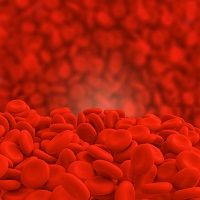Epoetin Alfa Biosimilar Is Effective in Treating Patients with CIA and Lymphoma or Myeloma
Researchers assessed the effect of epoetin alfa biosimilar both with and without iron supplementation on CIA in patients undergoing treatment for oncologic and hematologic malignancies.

At the American Society of Hematology (ASH) 57th Annual Meeting & Exposition, Florian Scotte, MD, Hopital Europeen Georges-Pompidou, Paris, France, and colleagues presented data from the observational study SYNERGY, which assessed the effect of epoetin alfa biosimilar both with and without iron supplementation on CIA in patients undergoing treatment for oncologic and hematologic malignancies.
During June 2012 — December 2014, researchers enrolled a total of 2,167 individuals 18 years and older with solid tumors, lymphoma, and/or myeloma and CIA, and followed them for 12-16 weeks.
Of the total, 6.6% (136) suffered from multiple myeloma, 12.75% (264) had lymphoma, and 84.5% (223) of the lymphoma patients were diagnosed with non-Hodgkin’s lymphoma.
The researchers noted hemoglobin (Hb) levels of patients with lymphoma and multiple myeloma were 9.5±0.8 g/dL and 9.5±0.9 g/dL, respectively; 40.2% (n=106) and 39.0% (n=53) of these patients had moderate anemia (Hb 8.0—9.5 g/dL), while 2.3% (n=6) and 4.4% (n=6) had severe or very severe anemia (Hb ≤8.0 g/dL), respectively.
They also highlighted concomitant iron supplementation was not prescribed with epoetin alfa biosimilar for most of the patients — 11.4% (30) lymphoma patients and 6.6% (9) multiple myeloma patients were administered iron, of whom 63.3% (n=19) and 77.8% (n=7) were prescribed oral iron formulations, respectively.
Results showed that the response rate to epoetin alfa biosimilar was lower in lymphoma patients given iron supplementation compared with those not administered iron; 66.7% (20) of the iron supplementation group were responders, compared with 75.4% (169) of patients without iron.
Additionally, response to epoetin alfa biosimilar was similar in multiple myeloma patients despite their iron supplementation status.
The team concluded, “These results indicate that epoetin alfa biosimilar was effective in treating patients with CIA and lymphoma/myeloma in France and agrees with previous studies. Iron supplementation did not appear to increase the response to epoetin alfa treatment in this population; however, confirmatory studies in larger patient cohorts are required.”